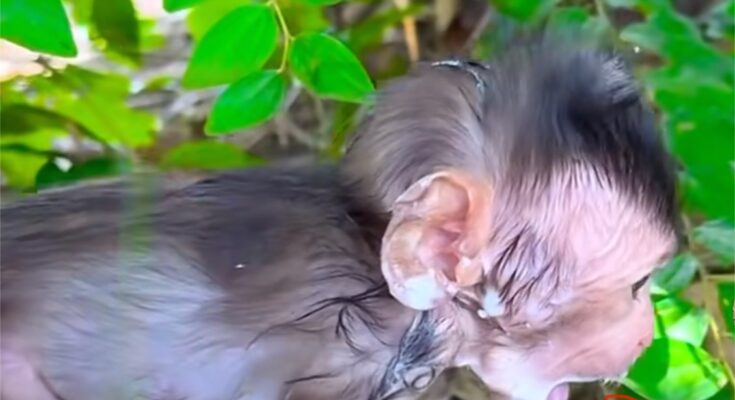Gastritis—an inflammation of the stomach lining—is a condition that can affect many animals, including baby monkeys. Because infants are more fragile and less able to cope with digestive problems, recognizing the early signs of gastritis is crucial for timely care and recovery. Baby monkeys cannot communicate their discomfort, so caregivers must pay close attention to physical and behavioral changes. Below are the key symptoms that may indicate a baby monkey is suffering from gastritis.
1. Persistent Vomiting
One of the most noticeable signs of gastritis in baby monkeys is frequent or recurring vomiting. While occasional vomiting can happen due to diet changes or stress, persistent episodes signal that something is wrong. A baby monkey experiencing gastritis may vomit shortly after eating or even on an empty stomach. Caregivers should also watch for bile-stained or foamy vomit, which can indicate severe irritation of the stomach lining.
2. Loss of Appetite
A sudden decline in appetite is another important symptom. Baby monkeys are usually energetic feeders, especially during growth stages. If a young monkey refuses milk, fruit, or other familiar foods, gastritis may be the cause. This loss of appetite often stems from nausea, abdominal pain, or an overall feeling of discomfort. Continued refusal to eat can quickly lead to dehydration and weakness, making it essential to monitor food intake closely.
3. Abdominal Discomfort or Tenderness
Gastritis often causes noticeable stomach pain. Because a baby monkey cannot verbally express discomfort, it may show physical signs such as hunching, curling up, or pressing its abdomen against surfaces for relief. When touched, the monkey might flinch, cry, or pull away, indicating tenderness. A bloated or visibly swollen belly can also accompany this discomfort.
4. Diarrhea or Changes in Stool
Inflammation of the stomach can also affect bowel movements. A baby monkey with gastritis may have loose stools, diarrhea, or unusually foul-smelling feces. In more severe cases, the stool may contain mucus or traces of blood. Persistent diarrhea is dangerous for young animals because it leads quickly to dehydration, so this symptom should never be ignored.
5. Lethargy or Weakness
Baby monkeys are naturally active, curious, and playful. A sudden drop in energy levels often suggests illness. Gastritis can cause fatigue because the body is under stress and unable to absorb nutrients properly. The monkey may appear unusually tired, reluctant to climb, or uninterested in interacting with its environment.
6. Excessive Thirst or Dehydration
Some baby monkeys with gastritis may drink more water in an attempt to soothe stomach irritation. Others may avoid drinking due to nausea, increasing the risk of dehydration. Signs of dehydration include dry mouth, sunken eyes, reduced skin elasticity, and decreased urination.
7. Irritability and Behavioral Changes
Pain and discomfort often lead to irritability. A baby monkey suffering from gastritis might become unusually clingy, vocal, or aggressive. These emotional changes, paired with physical symptoms, strongly suggest digestive distress.
Conclusion
Recognizing the symptoms of gastritis in baby monkeys is vital for ensuring their health and well-being. Persistent vomiting, loss of appetite, abdominal discomfort, diarrhea, lethargy, and behavioral changes are all red flags that require immediate attention. Early intervention by a veterinarian can prevent complications and help the young monkey recover quickly. Caregivers should always monitor diet, hygiene, and stress levels to reduce the risk of gastritis and keep baby monkeys healthy and thriving.



